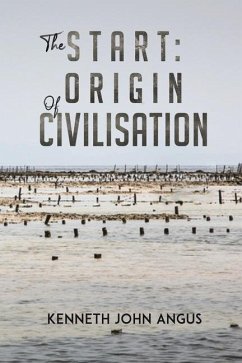Questions have always been raised about the origins of the world's first civilisation and why they chose such an inhospitable land to start their quest. The people looked and sounded different from the surrounding clans and seemed to appear from nowhere. They didn't just survive, they prospered and built cities with advanced methods of agriculture not even attained today in the region. This book provides evidence of where they came from: an indigenous people of both the Arabian Peninsula and the Gulf Oasis, a fertile land rich in animals and vegetation. This was eventually consumed by the world's rising sea levels in 7,200 BC, forcing the apocalypse-stricken populace to abandon their home and seek refuge in the rest of the surrounding higher lands. They brought with them advancements never seen before whilst utilising the sparse raw materials at their disposal.
Hinweis: Dieser Artikel kann nur an eine deutsche Lieferadresse ausgeliefert werden.
Hinweis: Dieser Artikel kann nur an eine deutsche Lieferadresse ausgeliefert werden.

